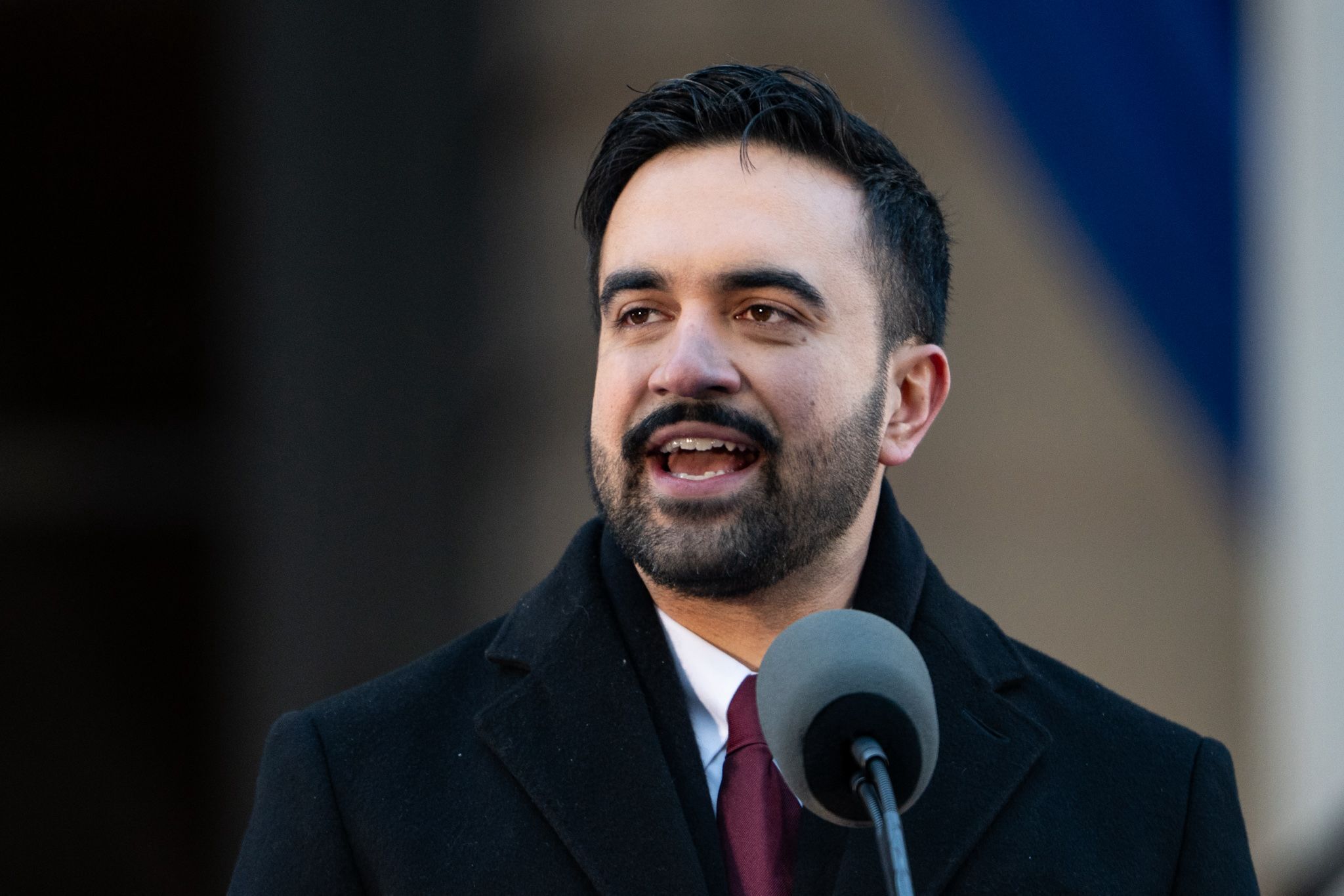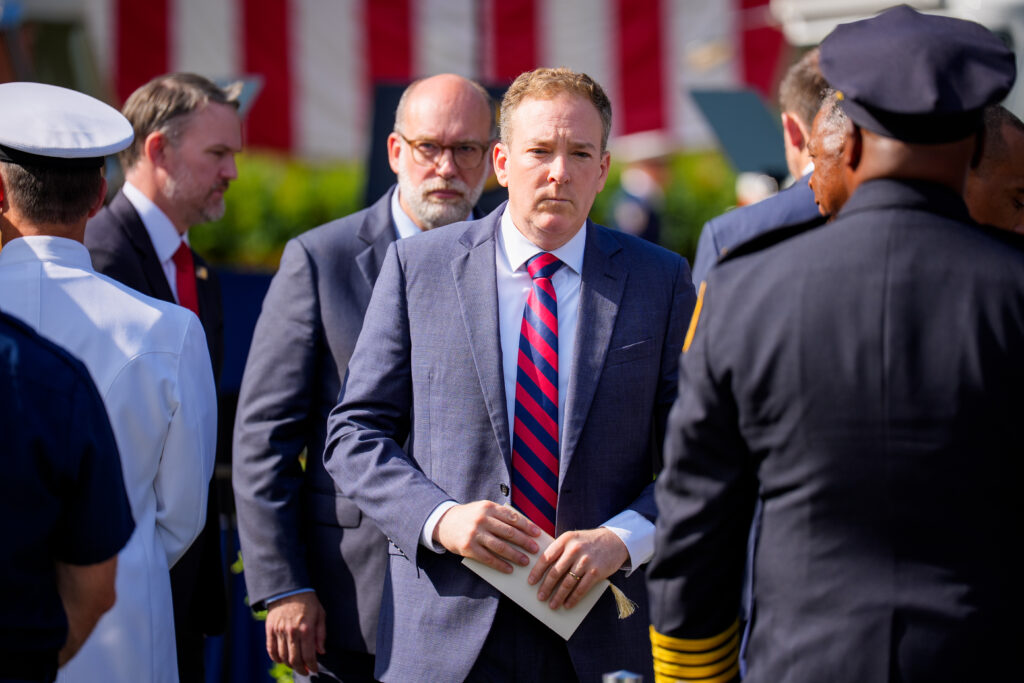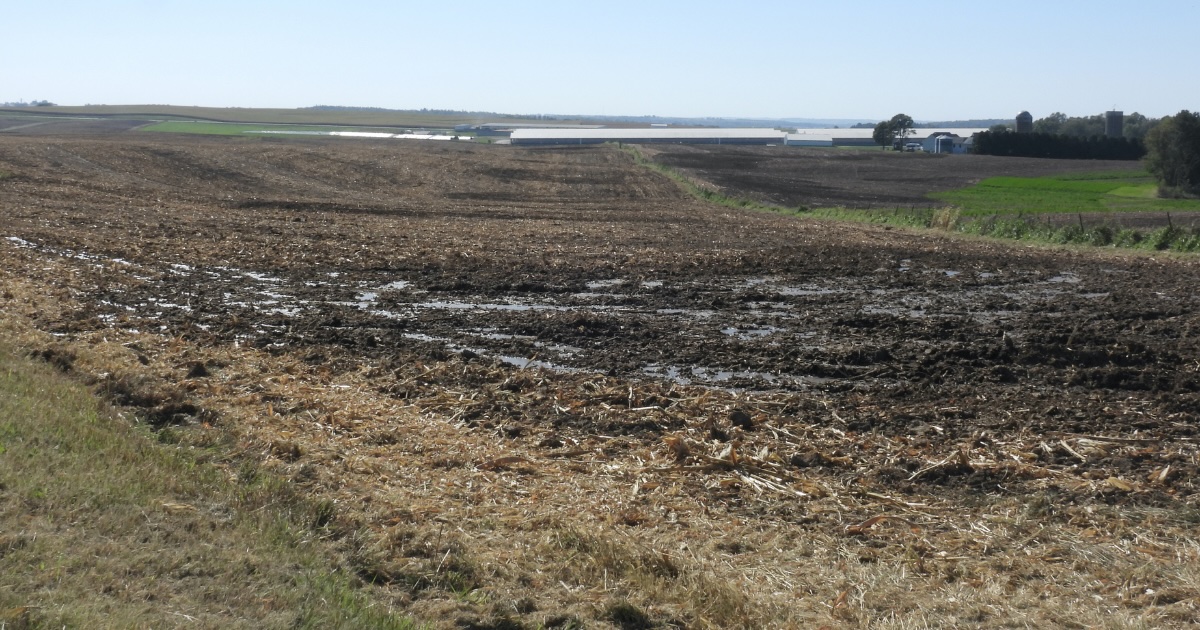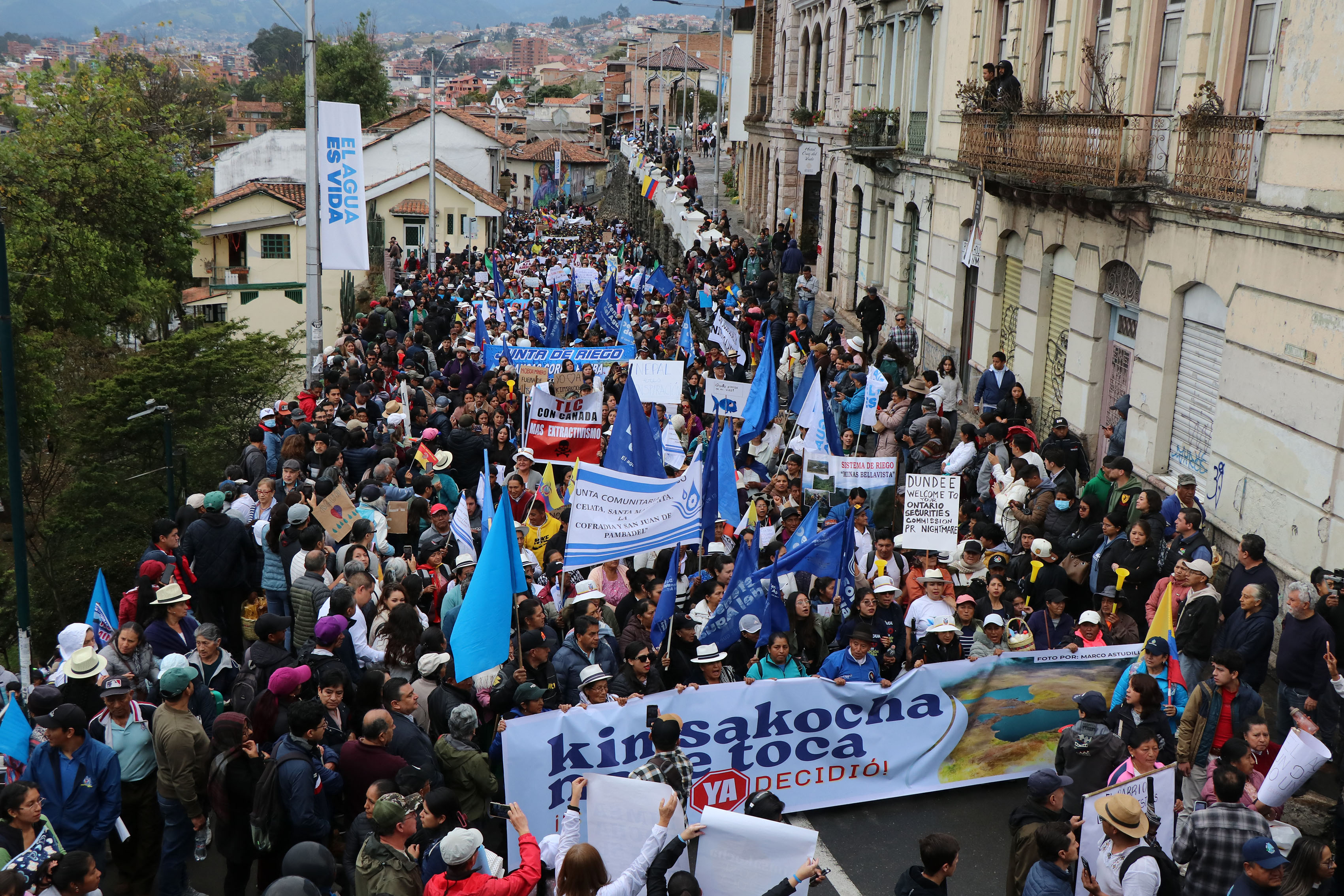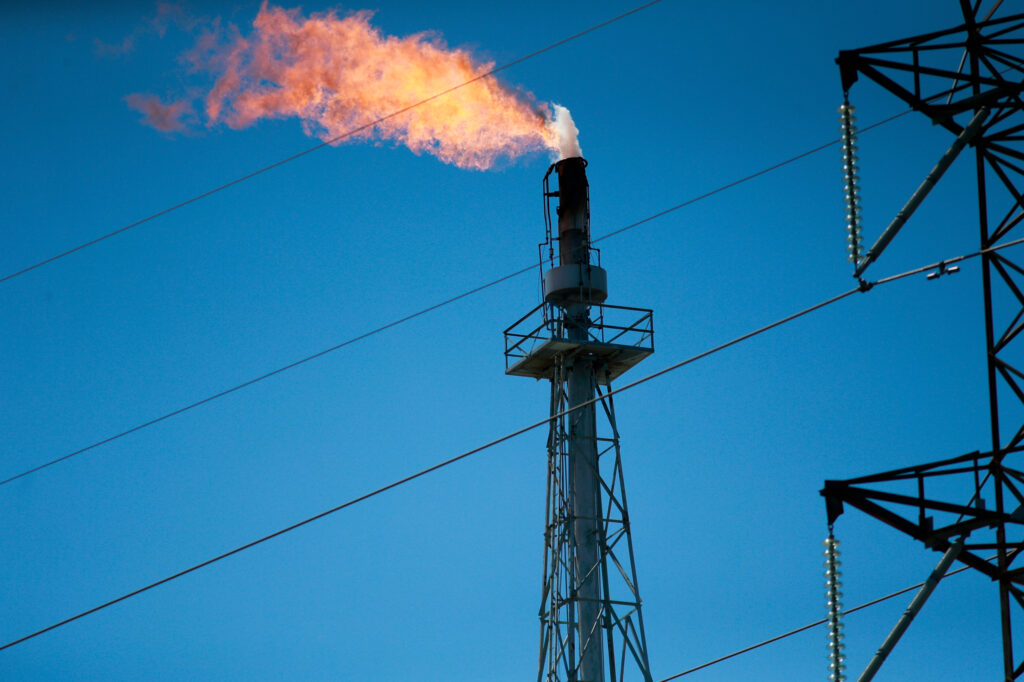WINDOW ROCK, Ariz.—As Election Day looms, efforts to get Native Americans to vote have intensified in places where tribal members live. Many of these endeavors are led by people like Sherry Bellson.
As people streamed into a Navajo Nation park last weekend to hear Democratic vice presidential candidate Tim Walz speak, Bellson handed out purple signs with the words “NATIVES VOTE.” It was a reminder in blue-and-yellow letters.
Bellson, who is Zuni and Navajo, has for years worked to convince unregistered people in the Pueblo of Zuni in New Mexico to get on the rolls, sending handwritten postcards and combating feelings that their vote won’t matter. When the early voting location in Zuni opened Oct. 19, she helped cook and serve stew there in what she called an “auntie style” turnout effort called “let’s stew this.” She said 69 community members voted that day.
“Having a community connection is always the basis of good turnout,” said Bellson, who works with Naeva and Native Organizers Alliance, Native-led nonprofits that advocate for strengthening tribal members’ voting rights and voting power. “Just because they registered doesn’t mean that they’re going to go vote, right? It’s always just the first step.”
Explore the latest news about what’s at stake for the climate during this election season.
These personalized get-out-the-vote efforts matter in a country that long denied Indigenous residents the ballot and still acts to suppress tribal turnout in some states.
Not until the Indian Citizenship Act of 1924 extended U.S. citizenship to Native Americans did the country grant them the vote. But it was largely a theoretical right. For decades after that, states with large populations of tribal members continued to bar them from registering.
In 1948, tribal members in Arizona and New Mexico challenged those states’ voting laws. Court decisions in both states sided with plaintiffs, legalizing voting rights to Native Americans. Arizona is home to 22 federally recognized tribes. There are 23 federally recognized tribes and pueblos in New Mexico.
Utah in 1957 and North Dakota in 1958 were the last states to grant Native Americans the right to vote, according to the American Bar Association. But suppression tactics have kept morphing, from registration literacy tests and intimidation to laws passed in recent years that make voting harder in areas with limited polling places.
Voting locations placed far from tribal lands are just one of the barriers that Native Americans still face today. Voter identification requirements and the lack of physical addressing systems in tribal communities can also stand in the way of registering and voting.
In a 2020 report that examined these types of obstacles, the Native American Rights Fund wrote that a third of the eligible Native voting population isn’t registered. That’s more than 1 million people.
“Native Americans voters have the potential to become potent political forces,” the Native American Rights Fund wrote.


The power of the Native vote has been conveyed in events like the 2024 Arizona Native Vote Forum, a three-day conference hosted about a month ago by Four Directions Inc. and the Phoenix Indian Center.
“Our goal is to get our people the power to vote and that it doesn’t matter who they vote for but it matters that they vote,” said Oliver “OJ” Semans, co-executive director of Four Directions and an enrolled member of the Rosebud Sioux Tribe.
Most of the forum centered on voting, but presenters also commented on the relationship between who is elected and how they work with tribes on topics like natural resources, protecting ancestral lands and sacred sites, and evaluating policies that further the relationship between tribes and the federal government.
In Southern California, the Fort Yuma Quechan Indian Tribe is pushing for President Joe Biden to use the Antiquities Act to establish the Kw’tsán National Monument on more than 390,000 acres of ancestral homelands and sacred areas beyond their reservation. They hope the designation will protect the land and endangered species there by preventing new mining claims and large industrial development.
Donald Medart Jr. has been serving since 2023 on the tribal council for the Fort Yuma Quechan Indian Tribe. At the forum, he spoke of the need for federal agencies to adequately consult tribes on decisions affecting them.
“If we elect people who don’t have the best interest of tribes in their heart, then we can expect to not be really consulted with, and we can expect those policies to shift in a different direction,” Medart said in an interview.
The land of the Fort Yuma Quechan Indian Tribe is on both sides of the Colorado River in southwest Arizona and southern California. Its leaders negotiate with other tribes, seven states and federal agencies to ensure the river’s future, Medart said.
For him, voting gives the Quechan people the choice of deciding who will best work with them on issues like the Colorado River.
“One of the things that I think is not conveyed enough is that we have a living river,” he said. “To be able to continue our cultural practices, and to be able to continue to have the heartbeat of our people. To move forward in our everyday lives.”
According to the Native American Rights Fund, urban Natives are often overlooked despite having a sizable presence in major cities.
“It’s our responsibility, and voting, it’s an act of defiance. We must vote. Because we have a political stand,” said Hope Craig, board chairwoman of the United American Indian Involvement Inc., a nonprofit provider of health and human services for Native Americans living in Los Angeles. Craig is Mvskoke of the Muscogee Nation of Oklahoma.
Rosetta Badhand Walker is an enrolled member of the Rosebud Sioux Tribe. She moved with her family to Tempe, Arizona, in 1995. Since then, she has been involved in local politics and is a certified registrar with the Maricopa County Recorder’s Office.
“About 25 years—so I’ve been through a few election cycles,” she said, laughing.
From fall 2022 through spring 2023, Walker was the elder-in-residence at Arizona State University, where she engaged with and supported Native American students.
While the key role of the elder-in-residence is to foster a sense of belonging and community, Walker took her involvement a step further by educating students about the importance of voting in state, federal and tribal elections.
“Sometimes it was a hard sell because, you know, young kids just fresh out of high school, that’s the last thing on their mind,” she said. “But that opened up the door to conversation for these young kids.”
Walker also reminded the students that Native Americans for decades defended the U.S. through military service before they were recognized as citizens and got to vote.
“I feel it’s so important that all generations exercise that right,” she said.
In Window Rock, Arizona, dozens gathered on Oct. 26 at the Navajo Nation Veterans Memorial Park to see Walz, the Minnesota governor who is Vice President Kamala Harris’ running mate on the Democratic ticket, at a campaign rally.
In the audience was Rippy Williams, a member of the Navajo Nation, who said he is undecided about who to vote for in the U.S. presidential election.
“I don’t like listening to Harris or Trump’s interviews,” Williams said. “Because Trump lets anything out at the mouth and it seems Kamala dances around the question and never really answers it. So now, I’m looking at the VPs.”
He said that he likes Trump’s running mate, JD Vance, but does not agree with the campaign’s position on abortion and reproductive rights.
“I don’t believe that anyone outside of a female and a doctor has say about a woman’s body, whether she wants to have an abortion or not,” Williams said, adding that he is a father of two daughters.
He was glad Walz was visiting the Navajo Nation.
“Maybe he’s going to say something today that’s totally going to inspire me to vote for them,” Williams said.
About This Story
Perhaps you noticed: This story, like all the news we publish, is free to read. That’s because Inside Climate News is a 501c3 nonprofit organization. We do not charge a subscription fee, lock our news behind a paywall, or clutter our website with ads. We make our news on climate and the environment freely available to you and anyone who wants it.
That’s not all. We also share our news for free with scores of other media organizations around the country. Many of them can’t afford to do environmental journalism of their own. We’ve built bureaus from coast to coast to report local stories, collaborate with local newsrooms and co-publish articles so that this vital work is shared as widely as possible.
Two of us launched ICN in 2007. Six years later we earned a Pulitzer Prize for National Reporting, and now we run the oldest and largest dedicated climate newsroom in the nation. We tell the story in all its complexity. We hold polluters accountable. We expose environmental injustice. We debunk misinformation. We scrutinize solutions and inspire action.
Donations from readers like you fund every aspect of what we do. If you don’t already, will you support our ongoing work, our reporting on the biggest crisis facing our planet, and help us reach even more readers in more places?
Please take a moment to make a tax-deductible donation. Every one of them makes a difference.
Thank you,







